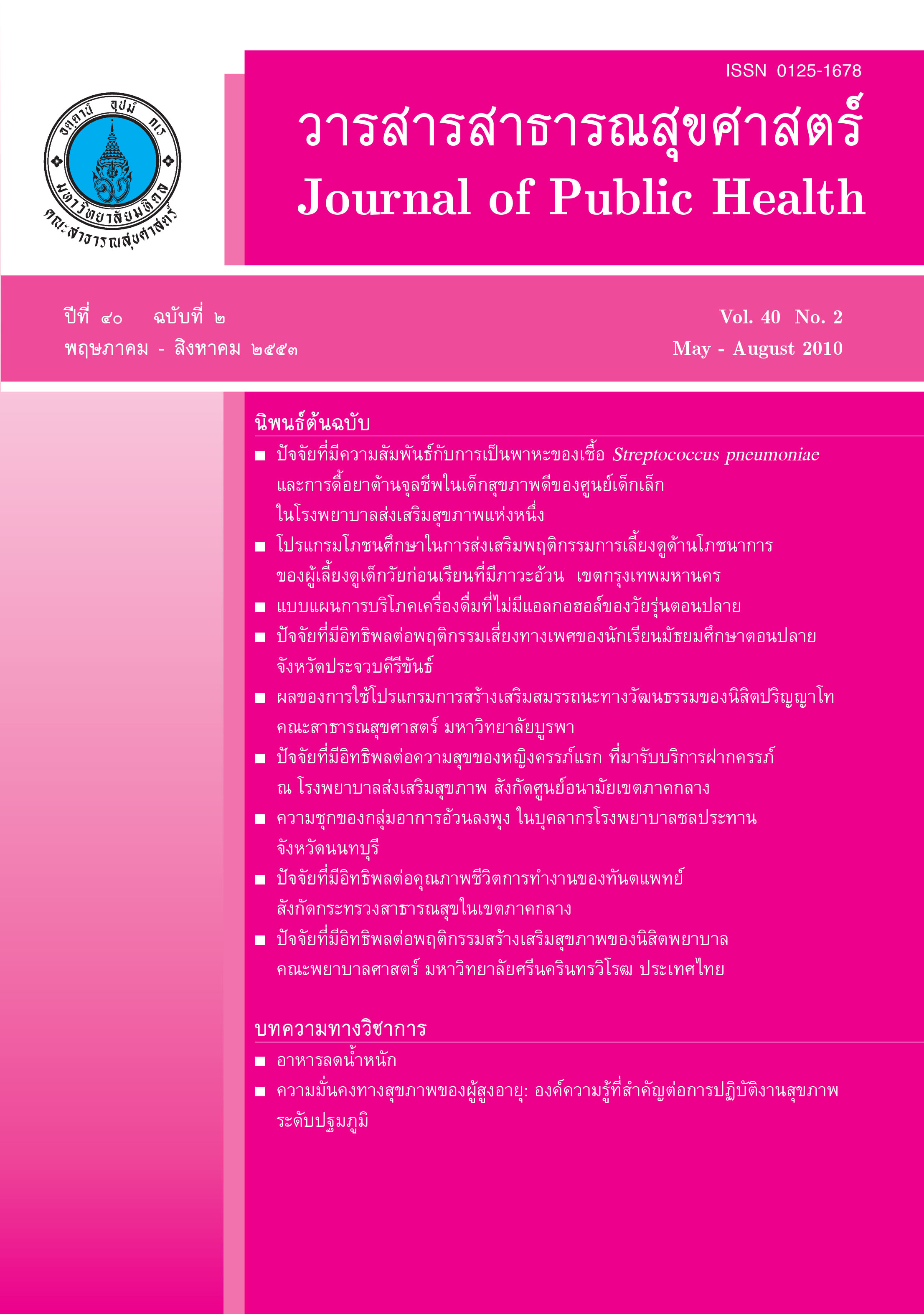แบบแผนการบริโภคเครื่องดื่มที่ไม่มีแอลกอฮอล์ของวัยรุ่นตอนปลาย
Keywords:
non alcoholic beverage consumption patterns, late adolescent, sugar, แบบแผนการบริโภคเครื่องดื่มที่ไม่มีแอลกอฮอล์, วัยรุ่นตอนปลาย, น้ำตาลAbstract
ABSTRACT
The objectives of this survey research were to evaluate the beverage consumption patterns of adolescents and sugar content in the beverages. Three hundred eighty bachelor degree students (year 1-4), B.Sc. (Public Health) Program in academic year 2006, Faculty of Public Health, Mahidol University, were the sample. The 56-item semi-quantitative food frequency questionnaire (FFQ) was used to assess beverage consumption patterns. Other data were obtained by questionnaires about demographics, beverage consumption, knowledge and awareness about sugar.
The results indicated that adolescents consumed at all periods of meal times. The most frequently consumed group of beverage in each meal time was milk in the morning, carbonated drinks in the afternoon and milk in the evening. The top 5 most frequently consumed type of beverage in descending order were: whole milk, non-fat milk, Cola-flavored carbonated drink, 100 % mixed vegetable and fruits juice, and non-fat drinking yogurt. The average of contained and added sugar content that the subjects obtained from beverage was 35.27 g/day or 7.05 % of the recommended amount (Thai RDI). The sugar contents came from natural and added source. The average of added sugar content obtained from beverage was 25.42 g/day, or 5.08 % of total appropriate energy, mostly from carbonated drinks. Knowledge of sugar consumption and sugar contained in beverage and awareness of sugar content obtained from beverage had a high significantly negative correlation to sugar content obtained from beverage (r = -0.175 and -0.214, p-value < 0.01).
The study found that the students in Faculty of Public Health have inappropriate beverage consumption patterns, causing excessive consumption of sugar. Therefore, it is suggested that pattern of beverage consumption need to be changed to prevent and reduce future chronic diseases.
Key words: non alcoholic beverage consumption patterns, late adolescent, sugar
Downloads
Issue
Section
License
Creative Commons License CC-BY-ND


